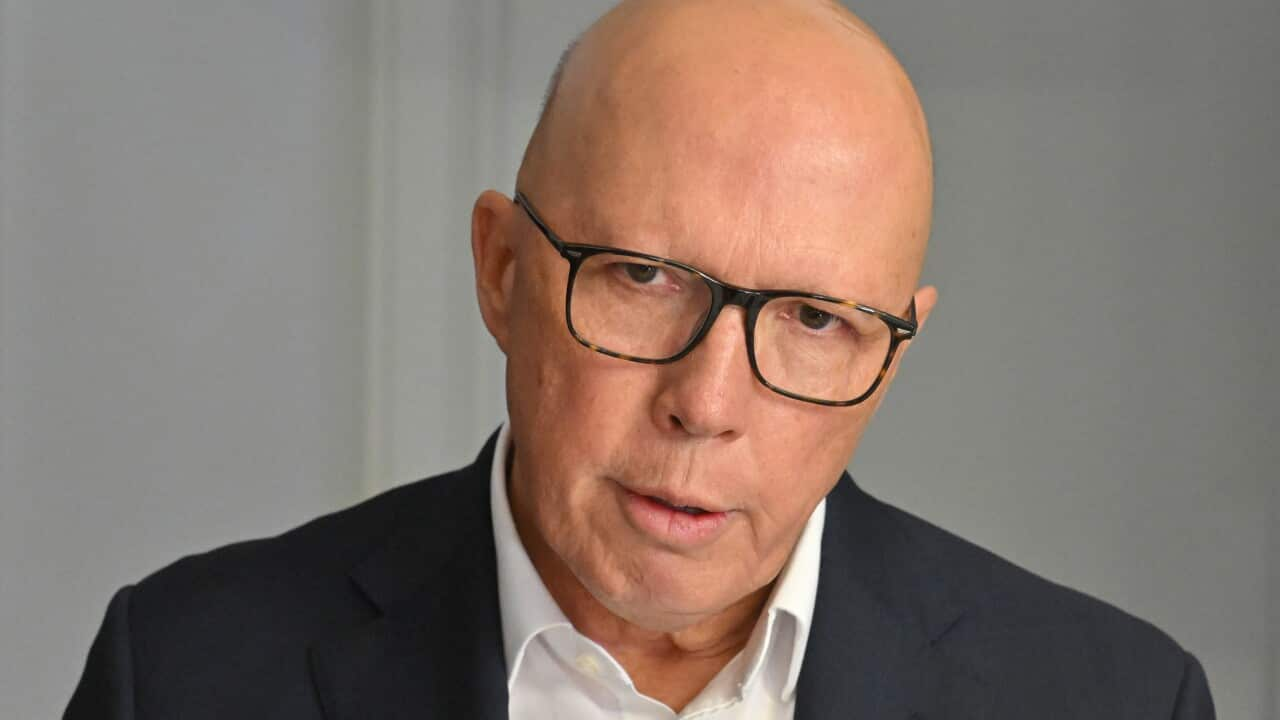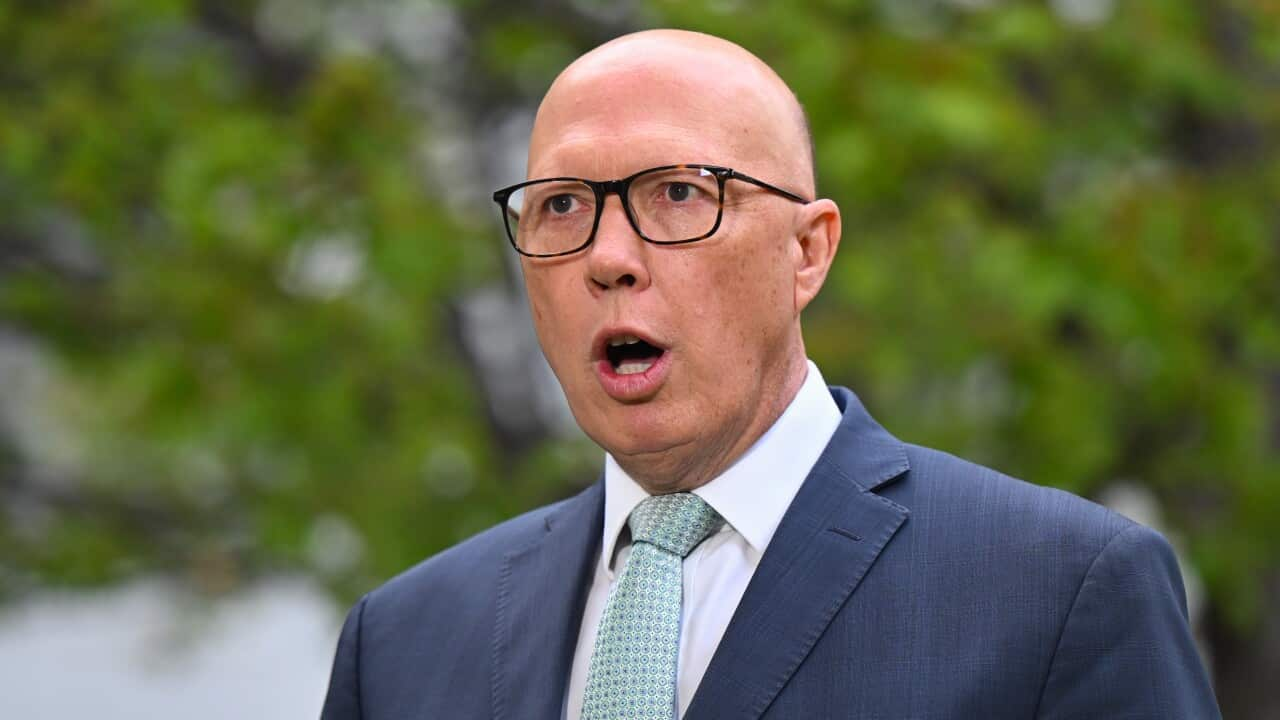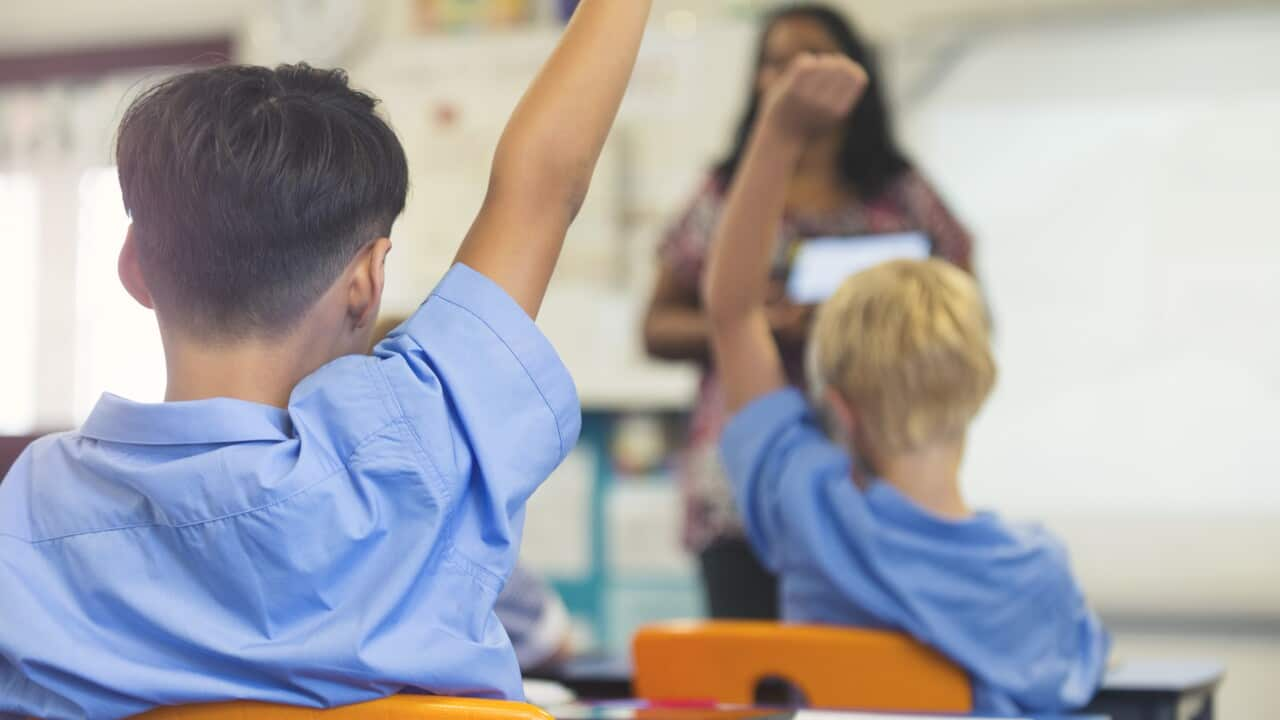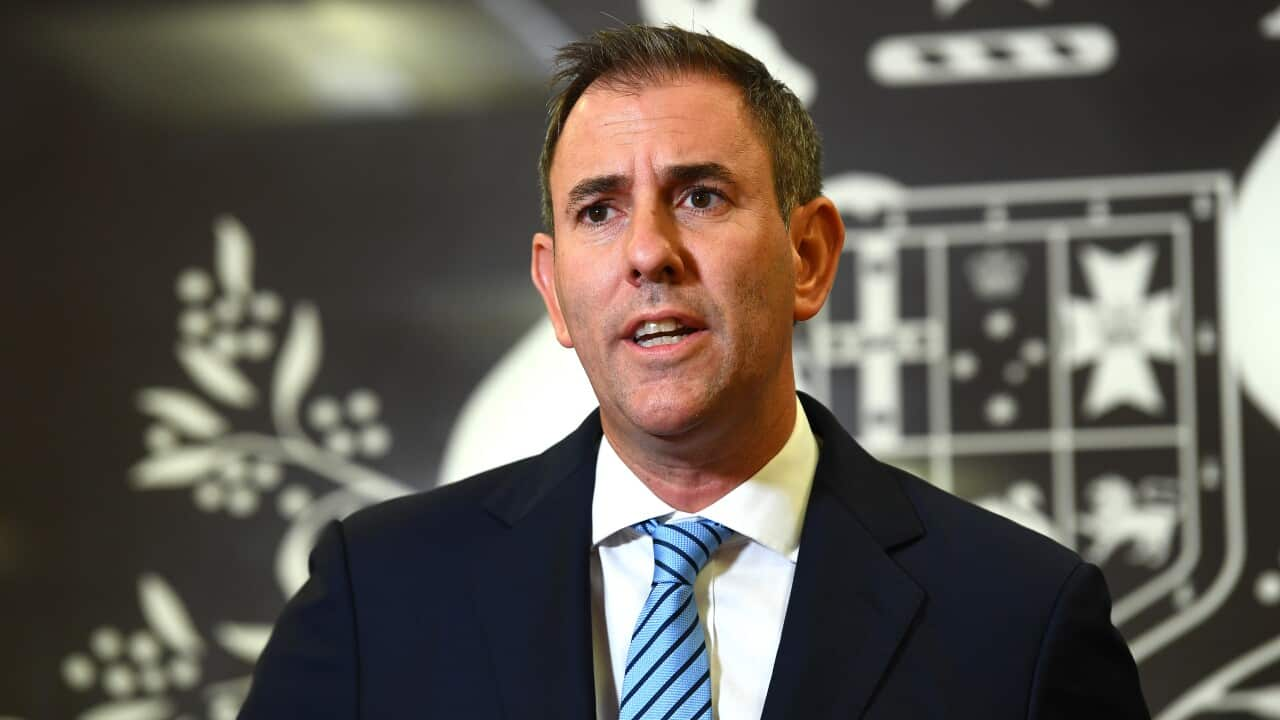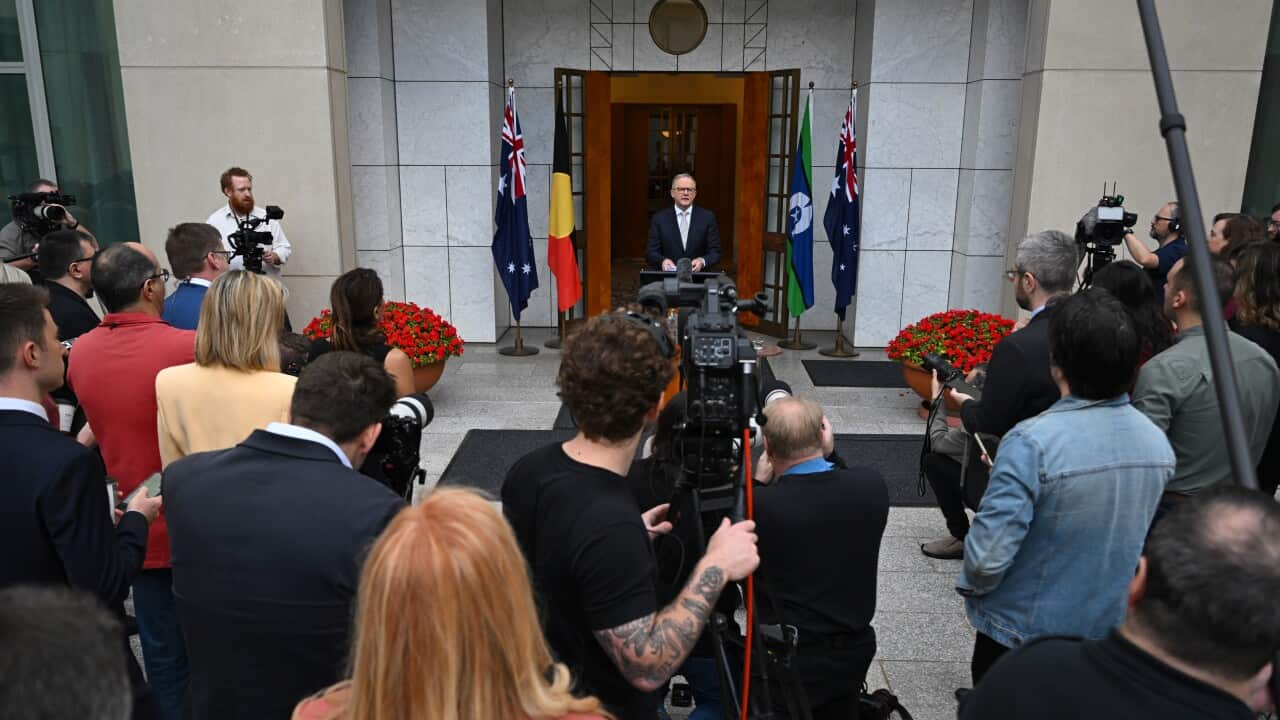Opposition leader Peter Dutton has flagged a crackdown on "woke" culture as the federal election campaign heats up.
During a live election forum on Monday night, Dutton suggested federal education funding could be withheld or reallocated from schools and universities to curb "woke" curriculums.
"I think there is a silent majority on this issue right across the community," he said.
The comments have raised fears about what specific subjects Dutton will quash, and whether the Department of Education could be the subject of a downsizing effort as part of his pledge to cut 41,000 public servants.
"Our position will reflect community standards in relation to what is being taught at our schools and our universities," Dutton told reporters on Tuesday.
He pointed to university academics and teachers who had been part of protests and recent controversy at Macquarie University over teaching of the Acknowledgement of Country.
"That's being translated into the classroom. That's not something I support," he said.
"I support young Australians being able to think freely, being able to assess what's before them and not being told and indoctrinated with something that is the agenda of others."
Asked what he meant by "indoctrination", Dutton told reporters on Wednesday: "I want our kids to be taught according to community beliefs and standards".
So what is wokeness, and why has it become such a target?
When did the term 'woke' start being used?
In literal terms, being "woke" refers to being awake and not asleep.
African Americans started using it in the 1940s as part of the debate around racial segregation.
In the 1971 play Garvey Lives! American playwright Barry Beckham used the term woke to describe a state of sensitisation to structural racism.
He wrote: "I been sleeping all my life. And now that Mr Garvey done woke me up, I'm gon' stay woke. And I’m gon' help him wake up other black folk."
In a contemporary context, wokeness has been tied to leftist political ideology and progressiveness. Its usage skyrocketed during the rise of political movements like Black Lives Matter.
Jack Hayes from the Coral Bell School for Asia Pacific Affairs at the Australian National University said the term is better known by its inversion — often used to criticise diversity, equity and inclusion policies.
"Anti-woke has been used by the far-right or conservatives to map it onto a whole 'boogieman' set of policies," he said.
"The strength of it ... is that they really don't have to define what it means."
Hayes said Dutton's vague references to "community beliefs and standards" were likely deliberate.
"I think that whole anti-woke thing, there are people [who are] attracted to that term because of its fluidity," he said.
"It may speak to unspoken issues that they have with immigration or same-sex marriage, or if they think that feminism has gone too far.
"It appeals because it doesn't force them to have to articulate that association.
"And the benefit for Dutton is that he doesn't have to say that ... people can meet him halfway and project their own anxiety onto the term. I think that's its power."
A 2022 research paper from The Australia Institute found 43 per cent of those surveyed didn't know what the term woke meant.
"The word woke has been used to describe everything from The Royal Family, Disney, the Wiggles, climate action, vegan food, Pope Francis, federal and state Liberal MPs and racial justice to how the Tasmanian Liberals arrange their Senate ticket," Bill Browne, director of the institute's democracy and accountability program noted.
Only 12 per cent of Australians had a negative view that described woke as about "punishing people who didn't think the 'right' things on social justice issues."
Over the years, conservative voters have begun to embrace the term.
"[It's used in] anti-vaxxer spaces to [to describe people who] 'wake up' to plans that are happening as to why the vaccine is being rolled out or why lockdowns are being put down," Hayes said.
Have school curriculums become more woke?
Dutton's suggestion that educational institutions need to go back to basics and ditch woke curriculums drew swift criticism from Labor.
"I'm focused on making sure that our kids can read and write, not this extreme agenda of Peter Dutton," Education Minister Jason Clare said on Tuesday.
The Greens have also accused Dutton of seeking to hold education funding to ransom.
But institutions such as Macquarie University's law school have been under fire for including tasks on the Acknowledgement of Country — which acknowledges Indigenous custodians of the land — as a compulsory component in one elective, for example.

Education minister Jason Clare condemned Peter Dutton's comments, saying children should be protected from the Coalition's own agenda. Source: AAP / Dan Himbrechts
That includes making positive contributions "in full partnership with First Nations peoples, in exposing, critiquing and remedying all forms of institutionalised injustice."
But former chair of the academic board at the University of Western Australia, Raymond Da Silva Rosa, said there was some validity to criticisms around wokeness if academics were expected to teach certain perspectives without being allowed to critically review them.
"[There's] nothing wrong with different ideologies being taught at universities — if you're not teaching them there, where else are you teaching them or addressing them?
"But I do have an objection — and I think every academic should — to a particular view or concept being taught."
Bella d'Abrera of the conservative think tank Institute of Public Affairs said she thought Australia's national school curriculum was infused with "woke ideology".
"It is very much prioritising radical gender theory and it is full of critical race theory and what we would call progressive issues."
She said basic skills at schools had been deprioritised against "social justice and activism", pointing to the 2023 NAPLAN results that showed almost a third of children were failing to meet new proficiency standards for literacy and numeracy.
But Hayes said declines in attention spans and the impact of social media were the real problems degrading public education.
He said schools should take a holistic approach to learning — being the place where children are socialised.
"Educational institutions … [are] not degree manufacturing machines and schools are not little prisons where parents send their kids to keep them out of their hair for the whole day," he said.
"They’re places for working on their social intelligence, their empathy, their ability to work in groups, their ability to work in diverse cultural settings, to understand what it means to have diversity in regards to sexuality or gender expression."
